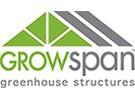A retail nursery has a much different look and feel than a traditional growing facility. While other operations can simply focus on maximizing their growing space, nursery owners are faced with the unique task of creating a production area that also serves as a retail destination.
This adds an interesting dynamic to a business’s strategy, as maintaining success becomes about much more than just producing high-quality crops. This certainly remains a focal point, but nursery operators must also take into account customer experience, working to draw in guests and ensure they turn into repeat buyers.

To achieve both of these goals, potential business owners need to first decide what kind of plant nursery they want to set up, as well as understand what goes into running a prosperous retail operation. The foundation of most successful retail nurseries is having a greenhouse that’s attractive, allows for superior environmental control, and lets owners easily scale their business. Combined with a functional interior space, a retail nursery will have the best chance of staying profitable long-term.
Getting a retail nursery operation off the ground
In the retail and nursery industry, there are essentially two types of operations: the retail nursery and the wholesale nursery. Although, in many cases, it can be better to start small, the type of business aspiring nursery owners choose will depend on various circumstances, like their location, available funding, and what scale they feel they can operate successfully.
Wholesale nurseries, also known as production nurseries, propagate flowers, plants, and other crops in bulk, then sell them directly to smaller retail nurseries, landscapers, building contractors, and more. These are often much larger operations, so they normally offer a wider selection of products, including annuals, perennials, fruit trees, native plants for different regions, and even landscaping materials.
In some cases, wholesale nurseries find it easier to operate as primarily mail orders, shipping goods to customers, without requiring them to shop on-site.
A traditional retail nursery follows a slightly different business model, operating on a smaller scale and distributing more locally. Many times, these businesses are run by self-sustaining growers who plant and nurture their own crops, but some retail nursery owners also choose to buy plants from wholesale nurseries to resell to their customer base.
Regardless of scale, there are a number of factors that every retail nursery needs to take into consideration so they can get off to a successful start. Along with the size of their operation, this includes details like daily labor requirements, plant selection, and, most importantly, the structure they will be housing their business in.
For a retail nursery, especially one operating locally, it’s crucial to have a high-quality greenhouse that’s designed with both the plants and the customer in mind. Not only do nursery owners need to have total control over the growing conditions within their structure, but the right greenhouse will also provide exceptional curb appeal, creating an inviting retail space that helps bring in customers.
From a financial standpoint, these operations should consider acquiring a gutter-connected greenhouse because it allows for simpler and more cost-effective expansion down the line. A smaller plant nursery can easily grow its business when they’re ready, and those looking to start a wholesale nursery are able to connect as many bays as needed, creating a massive production space that rivals well-established commercial garden centers.
For more information: GrowSpan Greenhouse Structures
GrowSpan Greenhouse Structures
1395 John Fitch Blvd
South Windsor, Connecticut 06074
Toll-free USA: (800) 476 9715
International: +1 860 528 9550
[email protected]
www.growspan.com
